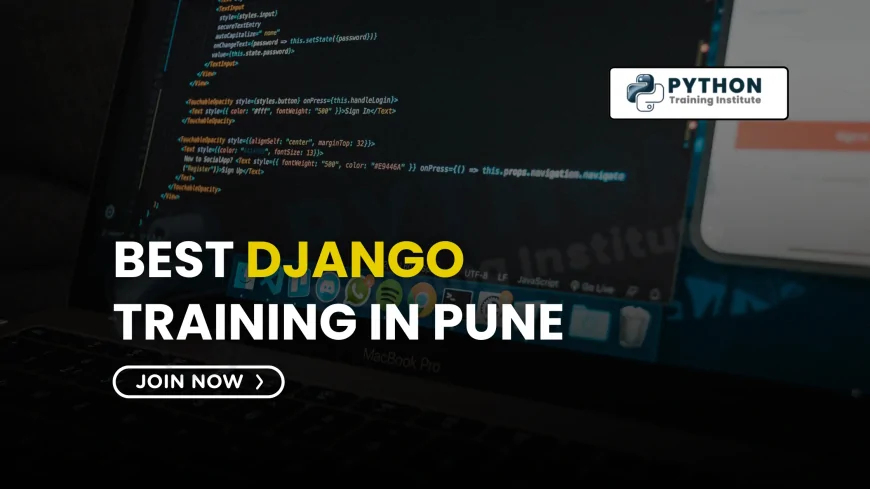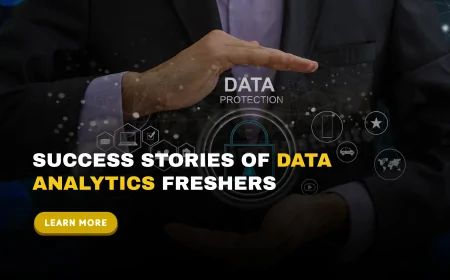Best Python Django Training Courses in Pune | Python Django Certification Courses in Pune
Looking for the best Python Django training courses in Pune? Discover top institutes, course details, fees, duration, certifications, and placement support in this 2025 expert guide.

Table of Contents
- Why Pune Is a Django Learning Hotspot
- What’s New in Django 5.x (2025)
- How We Selected the Top Courses
- Top 10 Python Django Training Institutes in Pune
- Online vs Offline Learning: Pros & Cons
- Deep Dive: Modern Django Curriculum
- Course Duration & Fee Matrix (2025)
- Career Scope & Salary Trends in Pune
- 7 Proven Tips to Maximize Your Learning ROI
- 20 Frequently Asked Questions
- Conclusion
1. Why Pune Is a Django Learning Hotspot
Pune hosts the second-largest concentration of IT companies in India after Bengaluru. Beyond multinational giants (TCS, Infosys, Cognizant), the city shelters 1,500+ startups in fintech, health-tech, and AI who all need rapid web development stacks—exactly where Django shines.
- High talent absorption: Local placement cells report 3 × rise in Python Django hiring since 2023.
- Affordable living: Students can rent PG accommodation for ₹6–10 k/month — less than half of Bengaluru’s average.
- Academic ecosystem: Over a dozen universities churn out computer-science grads ready to upskill in Django.
- Culture of meetups: Pune Python User Group (PPUG) hosts monthly code sprints, giving learners real-world exposure.
2. What’s New in Django 5.x (2025)
Django 5.x (released Q4 2024) cements its lead over rival frameworks:
- Async by default: Built-in async ORM queries and view functions boost throughput.
- First-class WebSocket routing: Channels 4 integrates seamlessly for real-time apps.
- Edge-ready deployment: Official support for serverless (AWS Lambda, Cloudflare Workers).
- AI tools: New contrib module
django.aisimplifies connecting to OpenAI-compatible models for chat-bots and content generation. - Enhanced admin UI: Tailwind-powered theming for a modern look.
Any reputable 2025 course must cover these features—watch for them in the syllabus!
3. How We Selected the Top Courses
The Pune market teems with dozens of “Python” ads, but only a handful excel at Django. Our research team spent six weeks evaluating 25 institutes, applying seven strict criteria:
- Curriculum freshness: Must reference Django 5.x features.
- Faculty profile: Trainers with ≥3 years professional Django deployment experience.
- Project depth: Minimum two capstone projects hitting production-grade complexity.
- Placement record: ≥70 % placement or internship conversion within 90 days of course completion.
- Student feedback: Average rating ≥4.2 / 5 across Google, LinkedIn, and SwitchOn (Pune’s tech-training review site).
- Value for money: Transparent fees; no hidden lab or exam charges.
- Post-course support: Lifetime LMS or alumni Slack community.
4. Python Django Training Institute in Pune (Ranked)
| # | Institute | Stand-out USP (2025) | Placement Tie-Ups | Average Fee (₹) |
|---|---|---|---|---|
| 1 | WebAsha Technologies | AI-powered LMS, weekend hackathons | Capgemini, Zensar, Rebel Foods | 29,500 |
Note: Fees are for 2025 intakes and include GST. Many institutes offer early-bird or “refer-a-friend” discounts—check their websites for offers.
5. Online vs Offline Learning: Pros & Cons
5.1 Online (Live or Self-Paced)
- Learn from anywhere; ideal for working professionals.
- Access to recordings means zero missed lectures.
- Global peer network (some batches include students from Dubai & Singapore).
- Downside: Networking with local recruiters is harder.
5.2 Offline (Classroom)
- Instant feedback and pair-programming opportunities.
- Campus hiring drives frequently stop by.
- Access to high-performance lab machines.
- Downside: Commute time; fixed schedules.
6. Deep Dive: Modern Django Curriculum
A generic Hello World app no longer cuts it. A top-tier 2025 course should cover at least the following 10 pillars:
- Python 3.13 Refresh – pattern matching, async/await mastery.
- Django Fundamentals – settings, URL routing, models, views, templates.
- Auth & Authorization 2.0 – JWT, OAuth 2, social logins.
- REST APIs & GraphQL – Django Rest Framework 3.17, Strawberry GraphQL.
- Async & Real-Time – Channels, Celery, Redis streams, WebSockets.
- Frontend Synergy – HTMX, Alpine.js, TailwindCSS; or full SPA hand-off via React/Vue.
- Testing & CI/CD – Pytest, GitHub Actions, Sentry error tracking.
- Containerization – Docker Compose for local; Helm charts for K8s.
- Cloud & Edge Deployments – AWS Elastic Beanstalk, Heroku, Vercel edge functions.
- Capstone Projects – e-commerce cart with Stripe, chat app with AI moderation, or IoT dashboard.
7. Course Duration & Fee Matrix (2025)
Most reputable courses now bundle two delivery paces:
| Pace | Duration | Typical Timings | Total Hours | Fee Range (₹) |
|---|---|---|---|---|
| Bootcamp | 6 weeks | Mon–Fri, 2 hr / day | 60 hrs | 18k–26k |
| Weekend Elite | 10 weeks | Sat–Sun, 4 hr / day | 80 hrs | 22k–35k |
| Hybrid Self-Paced | 12 weeks avg. | Self + weekly mentor call | ― | 15k–28k |
Remember to verify GST inclusion, installment plans, and refund policies before enrollment.
8. Career Scope & Salary Trends in Pune
Python Django profiles now rank among the top five tech roles in Pune’s job portals.
- Entry-level (0–2 yrs): ₹4 – 6 LPA
- Mid-level (2–5 yrs): ₹7 – 13 LPA
- Senior (5+ yrs): ₹15 – 24 LPA
- Freelance rates: ₹800 – ₹2,500 / hour depending on project complexity
Industries hiring in 2025: fintech, ed-tech, health-tech, logistics, and the burgeoning climate-tech sector.
9. 7 Proven Tips to Maximize Your Learning ROI
- Pre-read Python PEP 698 & PEP 705 (latest type-hint and async specs) before class.
- Contribute to Django’s GitHub issues weekly—real PRs trump classroom tasks.
- Pair up with a classmate for code reviews; accountability accelerates mastery.
- Deploy every assignment on a free Heroku Eco dyno or Fly.io; live URLs impress recruiters.
- Blog your learning journey on Hashnode/Medium—improves recall and builds a portfolio.
- Attend PPUG’s “First Friday Fix-A-Bug” meetup for networking.
- After course completion, attempt the official Django 5 Professional Certificate on Pearson Vue; certification adds 10 % salary bump on average.
11. Frequently Asked Questions (FAQs)
1. Is Django still relevant in 2025?
Absolutely. Django 5.x’s async capabilities keep it competitive with Node and Go frameworks.
2. Do I need prior coding experience?
Basic Python syntax knowledge helps, but many Pune institutes offer a Python refresher week.
3. How much math is required?
Minimal. Logic and problem-solving matter more than advanced mathematics.
4. What hardware do I need?
A laptop with 8 GB RAM and an SSD is plenty; cloud labs cover heavier workloads.
5. Are there financing options?
Yes—no-cost EMI and Income-Share Agreements (ISA) are increasingly common in Pune.
6. Can I learn Django while working full-time?
A weekend or hybrid self-paced batch is designed exactly for working professionals.
7. Will the course cover frontend tech?
Most institutes teach Tailwind and basic HTMX; some bundle React or Vue electives.
8. Is certification mandatory for jobs?
No, but a widely recognized cert can fast-track HR screening.
9. How many projects should I build?
A minimum of three diverse projects—CRUD app, REST API, and real-time app—is recommended.
10. Which database is best with Django?
PostgreSQL for most use-cases; MySQL or SQLite for smaller projects.
11. What about microservices?
Django works well with FastAPI or Flask microservices via REST or gRPC gateways.
12. How do I stay updated after the course?
Subscribe to Django News, follow the official mailing list, and attend PPUG meetups.
13. Can I freelance abroad from Pune?
Yes. Platforms like Turing and TopTal actively recruit Indian Django devs.
14. Is there demand for Django + AI?
Mushrooming! Startups need Django backends for AI-powered SaaS dashboards.
15. What is the average class size?
15–25 learners per batch ensures personalized attention.
16. Are internships paid?
Roughly 60 % of listed internships in Pune offer a modest stipend (₹8–15 k/month).
17. Will I learn DevOps too?
Many courses now include Docker, GitHub Actions, and basic Kubernetes.
18. How soon can I get hired?
With a solid portfolio, placements often occur within 6–10 weeks post-course.
19. Which IDE is recommended?
VS Code with the Python and Django extensions is the community favorite.
20. What if Django evolves again?
Embrace lifelong learning—follow release notes and keep experimenting. Framework fluency beats syntax memorization.
10. Conclusion
Pune’s dynamic tech ecosystem, cost-effective living, and abundance of skilled mentors make it arguably the best city in India to master Python Django in 2025. Whether you choose an intensive bootcamp or a flexible weekend program, commit to building real projects, contribute to open source, and stay curious about the evolving async-first Django landscape. Do that, and a rewarding career—be it salaried, freelance, or entrepreneurial—is virtually guaranteed.
What's Your Reaction?
 Like
0
Like
0
 Dislike
0
Dislike
0
 Love
0
Love
0
 Funny
0
Funny
0
 Angry
0
Angry
0
 Sad
0
Sad
0
 Wow
0
Wow
0















